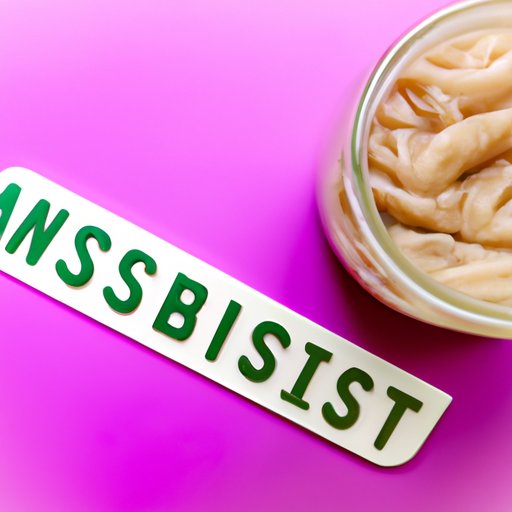
How to Clear Intestinal Blockage: Understanding Symptoms and Treatments
Intestinal blockage, also known as bowel obstruction, occurs when there is a blockage preventing the normal flow of food, liquid, and gas through the intestines. This can cause a range of uncomfortable and painful symptoms, including nausea, vomiting, abdominal pain, and constipation. If left untreated, intestinal blockage can lead to serious complications, including bowel perforation and sepsis.
In this article, we will explore the causes, symptoms, and treatments for intestinal blockage. We will also discuss how diet and lifestyle changes can help prevent future blockages and improve overall intestinal health.
What is an Intestinal Blockage?
Intestinal blockages can occur in any part of the digestive system, including the small intestine, large intestine, and rectum. Common causes include scar tissues and adhesions, tumors, and constipation.
The symptoms of intestinal blockage may vary depending on the location and severity of the obstruction. Some common symptoms include:
- Abdominal swelling and bloating
- Constipation or diarrhea
- Cramping
- Nausea and vomiting
- Inability to pass gas or stool
- Lack of appetite
Causes of Intestinal Blockages
There are a number of factors that can cause intestinal blockages. Scar tissues and adhesions, which are bands of fibrous tissue that develop as a result of abdominal surgeries or infections, can twist and narrow the intestines. Tumors, both benign and malignant, can also grow within the intestinal tract and cause blockages.
Constipation, which occurs when stool moves too slowly through the digestive tract, can also lead to an intestinal blockage. Hardened stool can accumulate in the intestines, causing a blockage that prevents the passage of gas and stool.
How to Clear Intestinal Blockages
Clearing an intestinal blockage will depend on the severity of the obstruction and its underlying cause. In some cases, medication may be prescribed to ease symptoms and encourage the movement of the intestines. In more severe cases, surgery may be necessary to remove the blockage or repair the intestines.
Many natural remedies may also help relieve symptoms and clear intestinal blockages. These remedies include:
- Drinking plenty of water to help soften stool and encourage bowel movement
- Taking over-the-counter laxatives or stool softeners
- Using a heating pad to soothe abdominal pain
- Performing gentle exercises, such as walking or yoga, to encourage bowel movement
It is important to note that while natural remedies may help relieve mild symptoms of intestinal blockage, they should not be relied upon as a sole treatment. Seeking medical attention before attempting any home remedies is always recommended, especially if symptoms persist or worsen over time.
Diet and Intestinal Health
Diet plays a crucial role in digestive health and can contribute to intestinal blockages and other digestive issues. Foods high in fat, sugar, and processed ingredients can all slow down digestion and make it harder for the intestines to move waste through the digestive system.
To promote intestinal health and prevent future blockages, it is important to incorporate a diet high in fiber, fruits and vegetables, and lean proteins. Foods to avoid include:
- Fried foods and other high-fat foods
- Sugary drinks and snacks
- Processed foods and snacks
- Red meat
Instead, consider incorporating the following foods into your diet:
- Fruits and vegetables
- Whole grains
- Lean proteins, such as chicken and fish
- High-fiber foods, such as beans and legumes
Intestinal Massages
Intestinal massages can help relieve symptoms of intestinal blockage by stimulating the intestines and promoting the movement of waste through the digestive system. The massage should be done in a clockwise motion, beginning on the lower right side of the abdomen and moving up, across, and down the left side.
To perform an intestinal massage:
- Lie down on a flat surface
- Use your fingertips to apply gentle pressure to the lower right side of your abdomen, just above your hip bone
- Move your fingertips in a circular motion, slowly making your way up, across, and down the left side of your abdomen
- Repeat this motion for 10-15 minutes, or until you feel relief
Testimonials
Many individuals have successfully treated intestinal blockages using the remedies mentioned in this article. One woman shared her story of curing an intestinal blockage through the use of natural remedies:
“I began experiencing severe abdominal pain and bloating, and after visiting the doctor, was diagnosed with an intestinal blockage. I immediately changed my diet, cutting out processed foods, red meat, and anything high in fat or sugar. I also began drinking plenty of water and using a heating pad to ease the pain. Within a week, my symptoms had disappeared, and I was back to feeling healthy and happy.”
Conclusion
Intestinal blockage is a serious condition that can cause a range of uncomfortable symptoms. However, with prompt medical attention and the use of natural remedies, most blockages can be successfully treated. By maintaining a healthy diet and lifestyle and paying attention to your body’s signals, you can help prevent future blockages and improve your overall digestive health.




